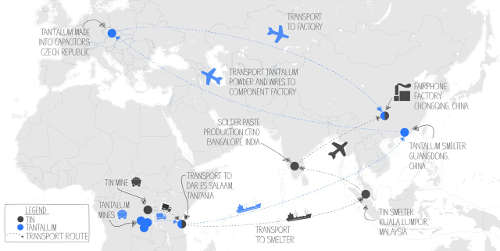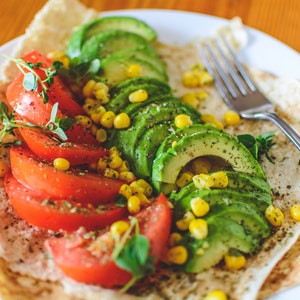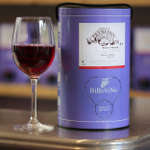
At a time when consumers want to know the costs and conditions of production of goods they purchase, the Dutch company, Fairphone, is committed to fair trade in the mobile phone sector. Several programmes surround the production of its smart phone, to guarantee workers rights, and communicate with clients in transparency about the real costs of production.
Thus, it participates in the "Conflict Free Tin Initiative" (CFTI) project, aiming to respond to issues linked to mineral extraction in the Democratic Republic of the Congo. As the country is one of the main sources of minerals, such as tantalum and tin, the mineral trade finds itself at the heart of armed conflicts. To meet CFTI clauses, Fairphone's suppliers have no link with militias and do not finance them. In addition, in partnership with its Chinese producer, Guohong, the company has put in place a fund dedicated to employee well-being ("Worker Welfare Fund"). This aims to improve working conditions in the factory, salaries, training and also the professional-personal life balance.

The other issue for Fairphone is to reduce the ecological impact of smartphones. The smartphone has a battery that can be accessed and replaced. The telephone is delivered without a mini USB charger, to reduce IT waste. Part of the telephone's price goes to sponsor associations fighting against electronic waste, in particular, "Closing the Loop". This Dutch organisation gives a second life to telephones thrown away in Europe, in developing countries. When the devices reach the end of their lives, they are collected then recycled. Also, the dual SIM cart port in the "Fairphone" offers the possibility of interchanging two distinct lines, and facilitates use of the devices outside the EU.
News in the same category
Seen as the future in world food, edible insects are being transformed for the more reticent. While Micronutris raises them and produces chocolates, crackers and biscuits, Ento is going for innovative restaurants.
Sainsbury's currently testing a new layout in six supermarkets in the UK. The goal is to make shopping even more easy and fast.
Vegan food come into it’s own in the East London district in the form of a new supermarket based at Homerton and named the Plant Based Supermarket which sells 100% vegan products.
It is no use looking for a bottle of wine in BiBoVino stores, as bottles have simply been replaced by Bag-in-Boxes (BiB) of 3 or 5 litres. However, the store makes a point of selecting quality wines.




